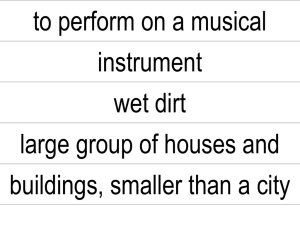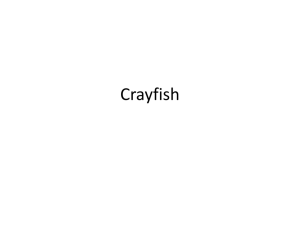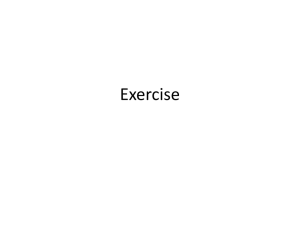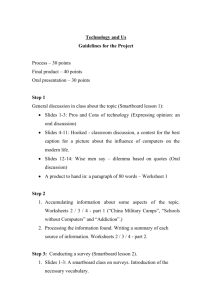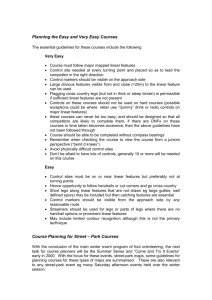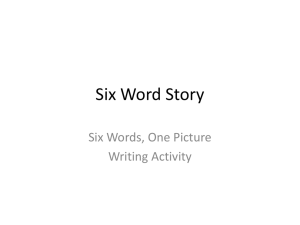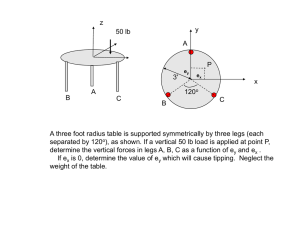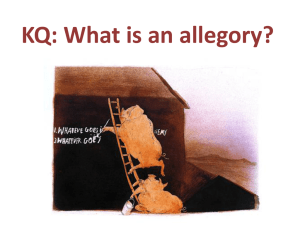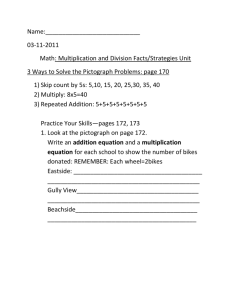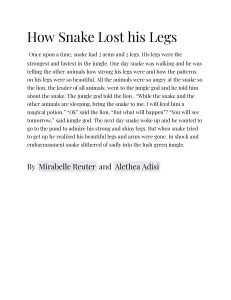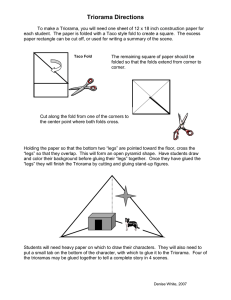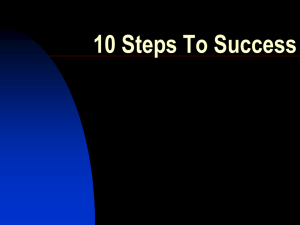Animal Growth & Changes: 2nd Grade Lesson Plan
advertisement
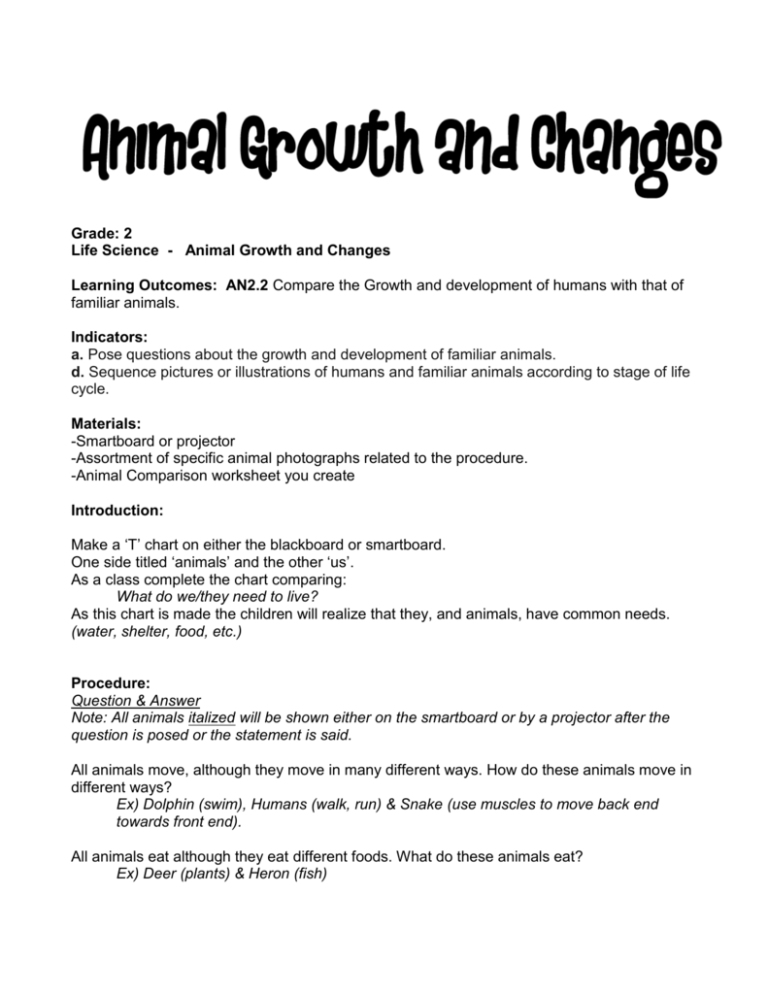
Grade: 2 Life Science - Animal Growth and Changes Learning Outcomes: AN2.2 Compare the Growth and development of humans with that of familiar animals. Indicators: a. Pose questions about the growth and development of familiar animals. d. Sequence pictures or illustrations of humans and familiar animals according to stage of life cycle. Materials: -Smartboard or projector -Assortment of specific animal photographs related to the procedure. -Animal Comparison worksheet you create Introduction: Make a ‘T’ chart on either the blackboard or smartboard. One side titled ‘animals’ and the other ‘us’. As a class complete the chart comparing: What do we/they need to live? As this chart is made the children will realize that they, and animals, have common needs. (water, shelter, food, etc.) Procedure: Question & Answer Note: All animals italized will be shown either on the smartboard or by a projector after the question is posed or the statement is said. All animals move, although they move in many different ways. How do these animals move in different ways? Ex) Dolphin (swim), Humans (walk, run) & Snake (use muscles to move back end towards front end). All animals eat although they eat different foods. What do these animals eat? Ex) Deer (plants) & Heron (fish) All animals grow, but they grow to many different sizes. Are these animals larger or smaller than us? Ex) Giraffe (larger than a human) & Squirrel (smaller than a human) & Humans All animals need a place to live, but animals live in different places. Where do these animals live? Ex) Humans (in a house, tent, igloo, ect.) & Fish (ocean, lake, pond) All animals have parts but they have different parts. Which parts do these animals have that we don’t? Ex) Rat (tail), and Duck (bill, webbed feet) How are these animals different from each other? -Tarantula (8 legs, small, insect), Humans (2 legs, 2 arms, largest) & Snake (no legs or arms) How are these animals alike? -Horse, Sheep, Frog & Camel (4 legs) Activity: Create an ‘Animal Comparison' worksheet to work on that poses the same questions as the ‘procedure’ but with different animals. You can also choose to do this activity collectively as a class. Several answers are possible for these questions. When complete, go through the answers together as a class to see the many different answers the class has come up with. Resources: (2007) Animals (K-2) taken from learninga-z.com Example Animal Comparison sheet: How they move? What they eat?
